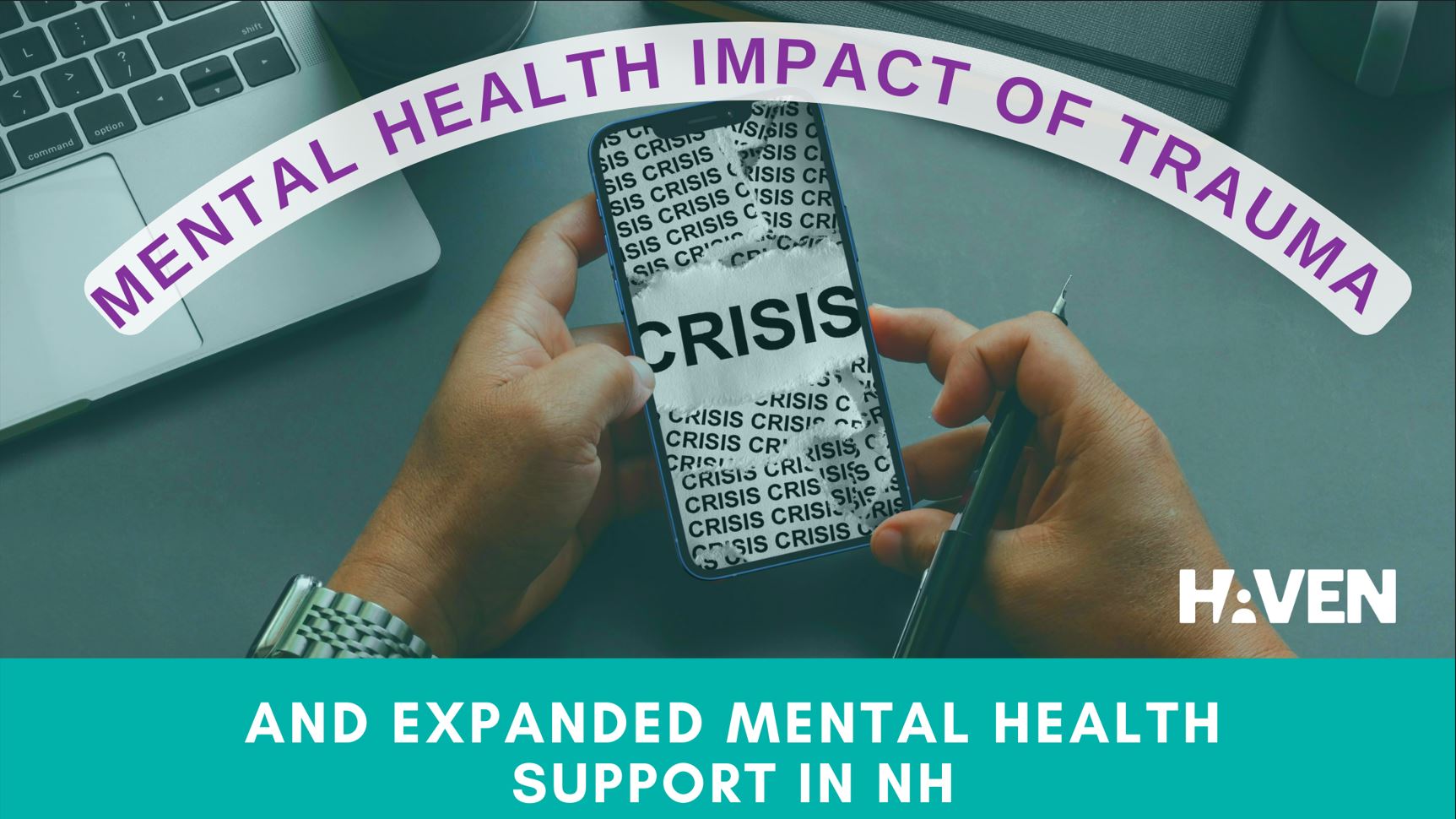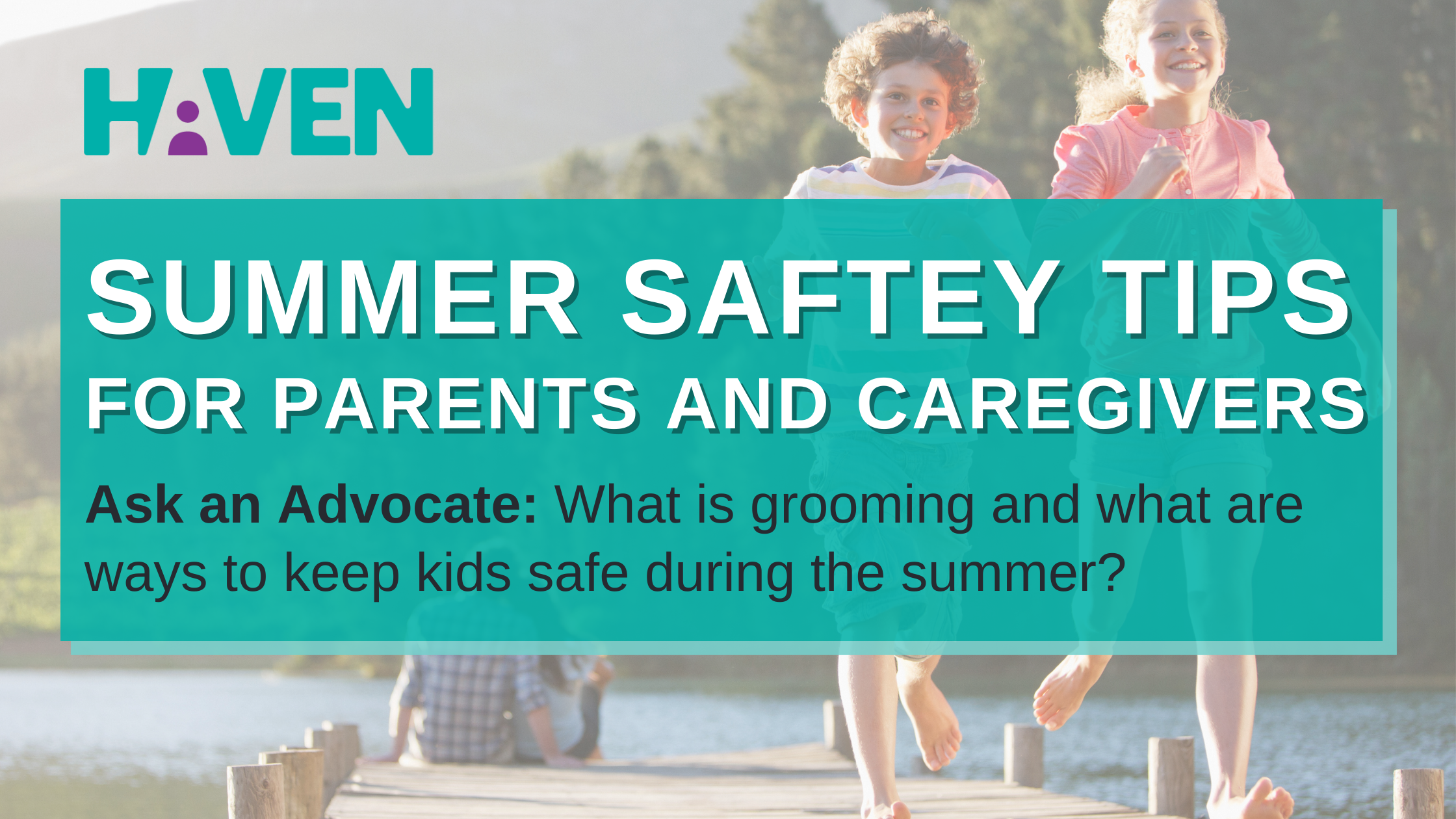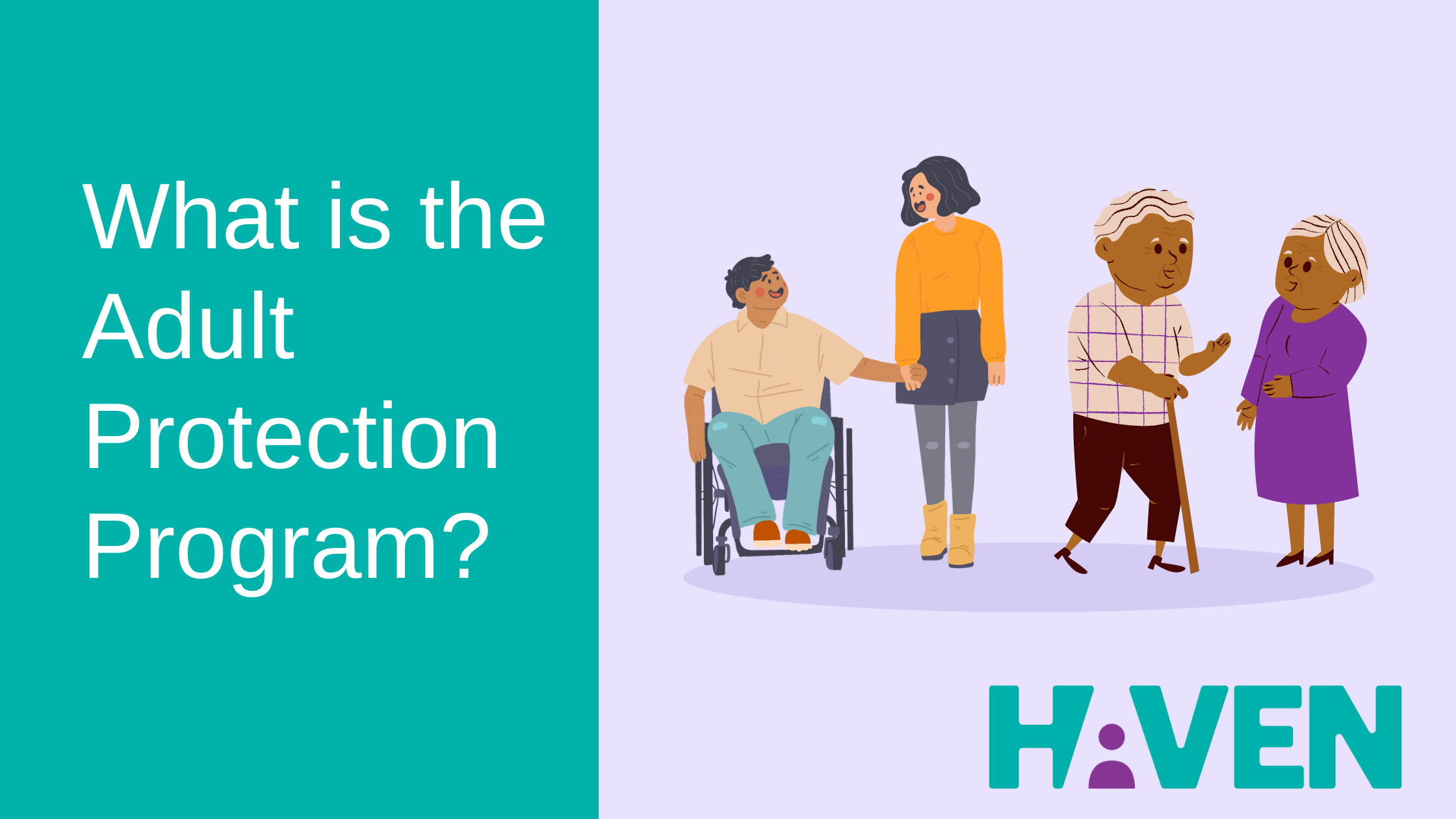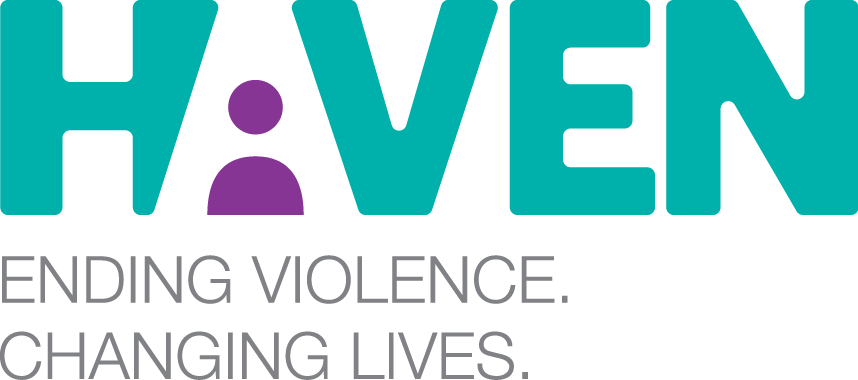
Ask An Advocate: Building Bridges to Safe Sustainable Housing for Survivors with HAVEN’s Housing Program
- HAVEN Staff
- November 12, 2021
- Supporting Survivors
- 0 Comments
Did you know that domestic violence is the leading cause of homelessness for women in the U.S.? In fact, housing instability and homelessness is a frequent and urgent concern for many of HAVEN’s clients.
Ari sat down with our housing program team, Kara Anne Rodenhizer, Manager of Housing Programs and Haley Ferland, Transitional Housing Case Manager, to discuss options and services that we provide to our clients.
Ari: What does a typical day look like for the very busy Housing Team?
Housing Team: It varies. A typical ‘day in the life’ consists of reviewing housing referrals. These referrals often come from our advocates that work on the hotline. Once the advocates pass it along to us, we will search for available units, or beneficial resources based on the information collected from our client.
We respond to clients within 72 hours by e-mail with information about HAVEN’s Housing programs, as well as other available housing resources. For example, New Hampshire Housing Finance Authority is a fantastic resource that always has units listed on their website and is updated weekly.
Next, we do a follow-up to make sure the housing units the clients are considering are safe and sustainable. This means the unit is affordable and workable for the long term. If it is not sustainable then they’re more likely to stay stuck in the vicious cycle of housing insecurity.
Finding sustainable permanent housing is the main goal of our Housing Program.
When we are not working directly with clients, we spend time working with community partners and landlords to educate them on our housing options for clients. Prevention of housing instability and homelessness affects the whole community and meeting the huge need requires lots of collaborative work.
Ari: What Housing services does HAVEN offer?
Housing Team: HAVEN’s comprehensive housing program offers Rapid Re-Housing, Housing First, as well as Transitional Housing to assist survivors. Clients don’t need to worry about trying to figure out what program they should apply for. A housing advocate will spend time with each client to determine what financial and social supports they require. We also help our clients apply for the programs that best fit their needs and circumstances.
HAVEN has many resources, and we work collaboratively with other community partners around housing. When a client’s needs are a better fit with another organization, we provide a warm handoff and make a referral to the appropriate provider. A warm handoff is more than just giving a client a phone number to call, it means our staff connects the client to someone who can provide what they need. For example, we may work closely with a town welfare office to help our clients in emergency situations when HAVEN’s shelter space is limited or to help with rental assistance.
The HAVEN Housing Team provides a thorough assessment of each survivor’s individual needs to determine which avenue or program is right for them. We work collaboratively with clients to explore all available options to find the right fit.
Ari: What are housing vouchers and why are they so important for sustainable housing?
Housing Team: Housing Choice Vouchers (HCVs), formerly known as section 8, are the federal government’s major program for assisting very low-income families, the elderly, and the disabled to afford decent, safe, and sanitary housing in the private market.
These vouchers generally allow an individual to pay 30% of their income towards rent. The local housing authority that administers the voucher will pay the remaining portion directly to the landlord.
Individuals who are issued a Housing Choice Voucher are responsible for finding their own housing and can choose any dwelling that meets the requirements of the program. HAVEN’s housing team can assist and support clients through this process.
Another common type of voucher is Project Based Vouchers. These vouchers are attached to a specific unit, rather than an individual. In other words, when a client moves out of a unit with a Project Based Voucher, the voucher does not move with the client, it remains with the unit. These vouchers also allow the tenant to pay 30 percent of their income for rent and utility cost.
Ari: How long does it take to get housing through your programs?
Housing Team: The length of time depends on the program the client is enrolled in and the needs of the client.
Waitlists for vouchers vary by housing authority. Attaining vouchers may take a long time and currently, in New Hampshire, the waitlists range anywhere from two to nine years.
Ari: Some clients worry if they are currently unemployed and have no income, that they won’t be eligible for HAVEN’s Housing program. Is this true?
Housing Team: Actually, it is still possible to get help without an income. For example, Rapid Re-Housing, which is accessible via Coordinated Entry, can cover up to 100% of rent and provide a utility allowance for up to 12 to 24 months for those who qualify.
Ari: Is there anything else you want HAVEN clients and supporters to know about HAVEN’s housing programs?
Housing Team: HAVEN is here to help in whatever way we can. If you are housed, homeless, or at risk of becoming homeless, we will support you and help you problem-solve. However, it is important to note that our Housing Programs do not provide emergency housing.
If a client is in a high lethality situation (meaning at high risk for being seriously hurt or killed by their perpetrator) or in need of emergency housing, it is best to seek emergency shelter. If you or someone you know need to flee immediately, we encourage you to call our hotline at 1-603-994-SAFE (7233) to speak to a free and confidential advocate 24 hours a day. Our advocates can help you safety plan and point you to resources that can help with your emergency housing needs.
To the larger community, we need to advocate for more affordable housing in our communities! The availability of safe, affordable, and long-term housing can make a critical difference in a survivors’ ability to build independence and improve safety when leaving an abusive partner. For many of our clients, accessing safe, affordable housing and economic resources to maintain safety are the most critical needs.
HAVEN recognizes that addressing survivors’ housing needs requires meaningful, sustained partnerships with community partners, landlords, housing authorities, and local municipalities. As an organization, our goal is to engage community members to support survivors’ safety, independence, and housing stability. Ultimately, this will create stronger and safer communities in the cities and towns we serve.
By itself, HAVEN cannot end homelessness, but together with our supporters and community partners, we can make a real and lasting difference for those we serve.
To learn more about the different types of housing programs and opportunities available click below:
You Might Also Like

New Hampshire Expands Mental Health Supports to Address Statewide Crisis

Ask An Advocate: Summer Time Safety Tips for Parents


